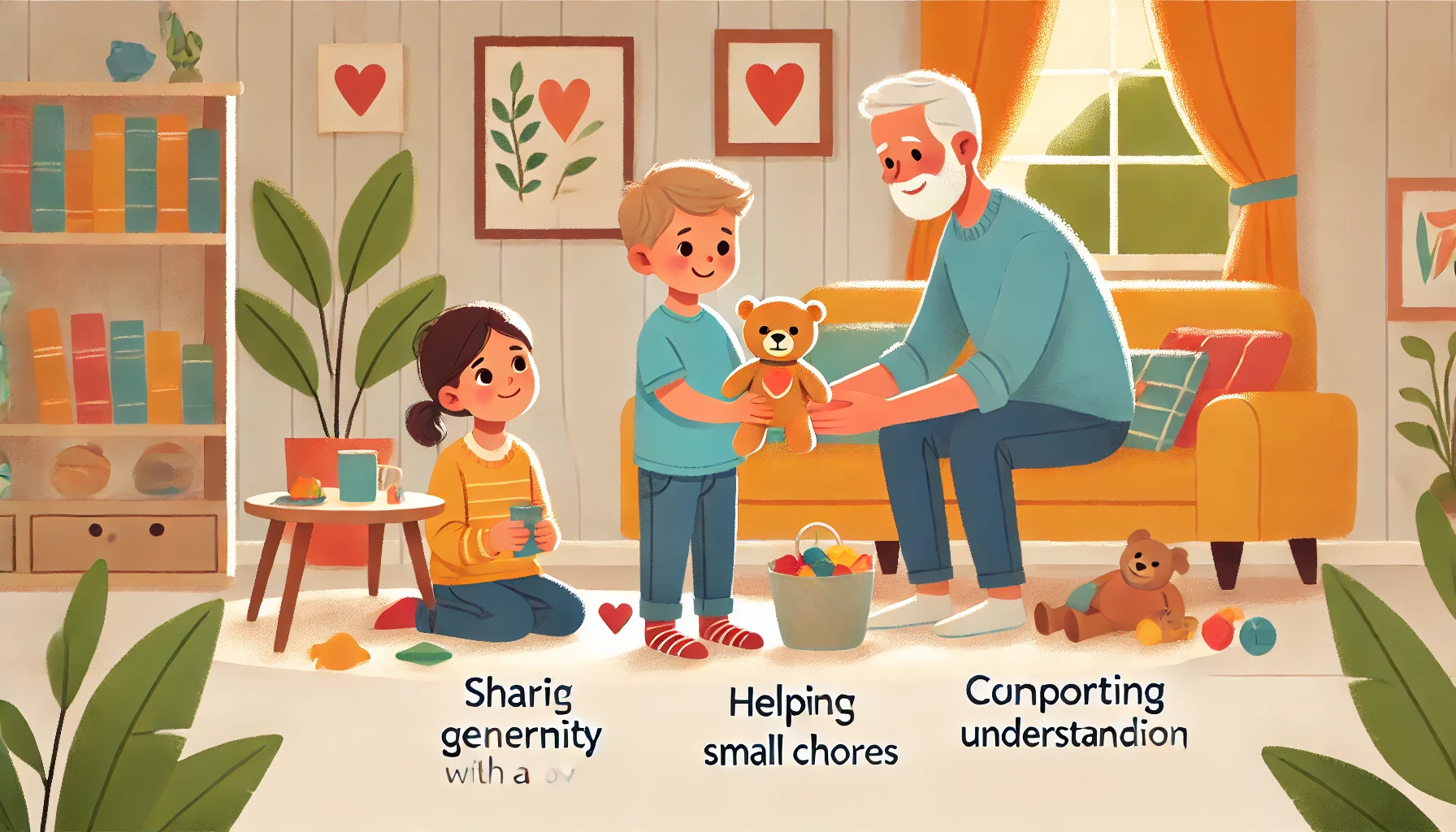How to Teach Children About Kindness and Empathy at Home
Kindness and empathy are essential skills that help children build strong relationships, understand emotions, and create a more compassionate world. Teaching these values at home through daily interactions, storytelling, and role-playing helps children develop emotional intelligence and respect for others. In this article, we’ll explore effective ways to nurture kindness and empathy in young children.
Why Teaching Kindness and Empathy Matters
- Encourages positive social interactions – Helps children build friendships and communicate effectively.
- Develops emotional intelligence – Teaches kids how to understand and respond to emotions.
- Promotes inclusivity and respect – Encourages acceptance of different perspectives.
- Strengthens conflict resolution skills – Helps children handle disagreements peacefully.
- Builds a more compassionate future – Fosters generosity and a desire to help others.
1. Model Kindness in Everyday Life
Children learn by observing how adults treat others.
Activity Idea:
- Speak kindly to family members and strangers.
- Show appreciation by saying “thank you” and expressing gratitude.
- Demonstrate small acts of kindness, like holding the door open or helping a neighbor.
What Kids Learn:
- The impact of kindness on others
- Respectful communication
- Leading by example
2. Read Books About Kindness and Empathy
Stories help children connect with characters and understand different perspectives.
Activity Idea:
- Choose books that highlight acts of kindness and empathy.
- After reading, ask, “How do you think the character felt?”
- Discuss ways to show kindness in real-life situations.
What Kids Learn:
- Understanding emotions through storytelling
- The importance of helping others
- Applying kindness in their own lives
3. Encourage Helping and Volunteering
Giving children opportunities to help others strengthens their sense of compassion.
Activity Idea:
- Let them help with simple household tasks, like setting the table or cleaning up.
- Encourage them to donate toys or clothes they no longer use.
- Involve them in community service, like writing cards for elderly neighbors.
What Kids Learn:
- Generosity and gratitude
- Responsibility and teamwork
- The joy of giving
4. Role-Play Kindness and Empathy Scenarios
Practicing real-life situations helps children develop social skills.
Activity Idea:
- Act out scenarios where one child feels sad, and another comforts them.
- Role-play how to share and take turns with toys.
- Pretend to be a new student at school and discuss how to make them feel welcome.
What Kids Learn:
- How to recognize and respond to emotions
- Ways to comfort and support others
- Social awareness and inclusion
5. Teach Children to Recognize and Express Their Own Emotions
Understanding their own feelings helps children connect with others’ emotions.
Activity Idea:
- Use emotion flashcards to help children label different feelings.
- Encourage them to talk about their emotions instead of reacting with frustration.
- Ask, “How do you feel when someone is kind to you?”
What Kids Learn:
- Self-awareness and emotional regulation
- Expressing feelings in healthy ways
- Understanding emotions in themselves and others
6. Praise Acts of Kindness
Positive reinforcement helps children repeat good behaviors.
Activity Idea:
- Recognize kind actions with praise: “I saw how you helped your friend. That was very kind!”
- Create a “Kindness Jar” where children add a bead every time they do something nice.
- Encourage them to reflect on how kindness makes them feel.
What Kids Learn:
- Motivation to continue being kind
- The value of recognition and appreciation
- Self-reflection on positive behavior
7. Encourage Perspective-Taking
Helping children see the world from another’s point of view strengthens empathy.
Activity Idea:
- Ask, “How do you think your friend felt when that happened?”
- Watch short videos or cartoons and discuss characters’ emotions.
- Encourage them to listen and consider others’ feelings before reacting.
What Kids Learn:
- Seeing situations from different viewpoints
- Responding with understanding and care
- Building emotional connections with others
8. Promote Teamwork and Cooperative Play
Playing together helps children learn patience, fairness, and kindness.
Activity Idea:
- Encourage games that require teamwork, like building a puzzle together.
- Play turn-taking games to practice patience.
- Praise cooperative behavior: “I love how you worked together to solve that problem!”
What Kids Learn:
- Working with others respectfully
- Sharing and taking turns
- The value of collaboration
Final Thoughts
Teaching kindness and empathy to young children helps them grow into compassionate and respectful individuals. By modeling kindness, reading stories, engaging in role-playing, and encouraging helpfulness, parents can create a home environment that nurtures emotional intelligence and strong social connections.
